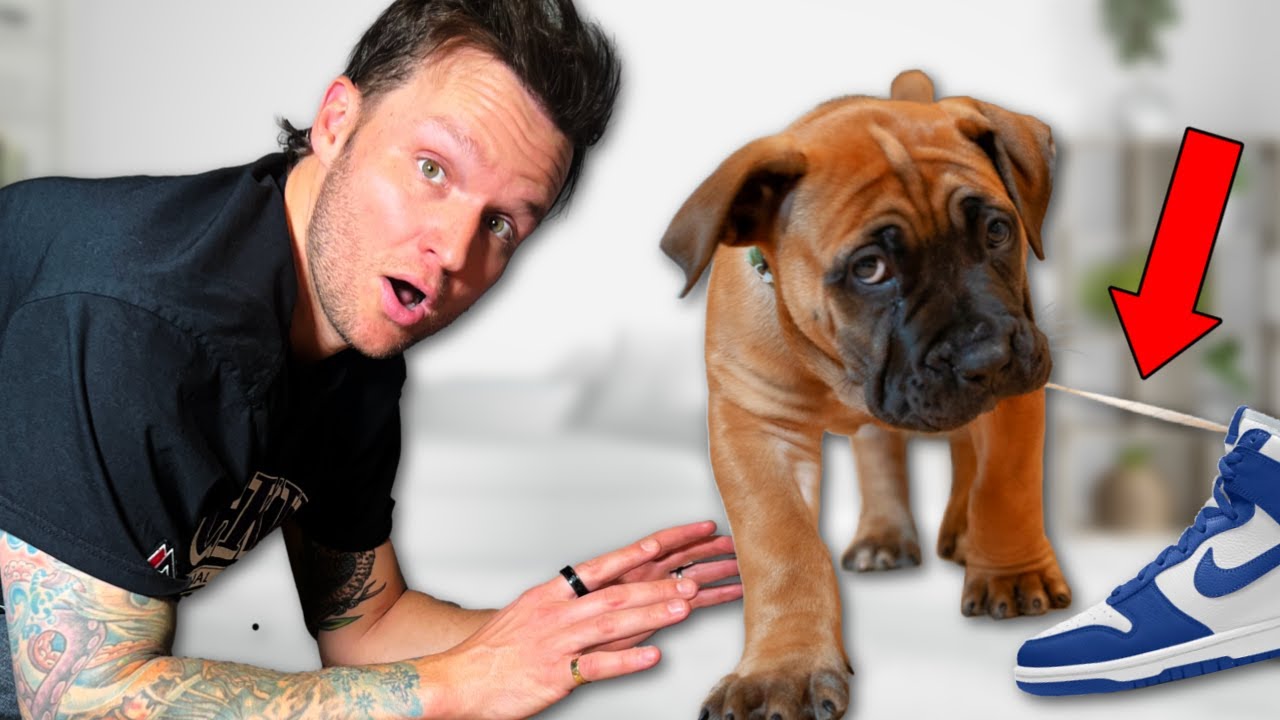Master the Basics of Working Dogs
Summary
TLDRThis script emphasizes the importance of attendance, acquisition, and adaptation in puppy training. It advises starting training when it's fun for the puppy, maintaining regular sessions, and quitting while the dog is still engaged. The trainer should acquire basic skills before attempting more advanced techniques and adapt training based on the dog's response. The focus is on building a love for training and recognizing when to rest for long-term progress, debunking the 'no days off' mentality.
Takeaways
- 📅 Consistent Attendance: Regular training sessions are crucial for a dog's progress, regardless of the quality of the techniques used.
- 🐶 Starting Training: Begin training when the puppy shows interest and excitement, such as when they are eager to take food from your hand.
- 🔍 Training Duration: Training sessions should be as long as the puppy is enjoying the activity, ending on a positive note to maintain enthusiasm.
- 🚀 Acquiring Skills: It's important to master basic skills before moving on to more advanced training to avoid confusion and frustration.
- 👂 Listening to the Puppy: Pay attention to the puppy's signals and adjust training accordingly, even if it means shortening a session.
- 🌱 Long-Term Improvement: Focus on long-term progress rather than immediate results, and use high rewards for maintaining motivation.
- 🔄 Adapting Training: Once basic skills are acquired, create space and make training more challenging by increasing the difficulty gradually.
- 🎾 Luring Techniques: Use lures such as food or toys to guide the dog's movements and build a foundation for more complex behaviors.
- 🤹♂️ Advanced Training: For advanced dogs, exercises like following a ball require impulse control and a higher level of training.
- 👋 Unintentional Movements: The trainer's hand shaking is due to a neurological condition and not a training technique.
- 🏋️♀️ Sustained Effort: Dog training, like muscle building, requires consistent effort over time and recognizing when rest is necessary.
Q & A
What are the three foundational principles mentioned in the script for effective puppy training?
-The three foundational principles mentioned are attend, acquire, and adapt.
Why is attendance the most important variable in any training schedule according to the script?
-Attendance is crucial because even if the dog is good and the training techniques are excellent, without consistent daily practice, the training will be ineffective.
When should you start training your puppy according to the script?
-You should start training your puppy when it seems like fun to them, such as when they are excited and willing to follow your hand with food.
How does the script suggest determining the length of training sessions for puppies?
-Training sessions should last as long as the puppy is having fun, and it's important to end on a high note before they lose interest.
What is the pitfall mentioned in the script regarding training sessions with young puppies?
-The pitfall is not graduating to more advanced training just because you have shown up consistently; you must first acquire the necessary skills.
How does the script emphasize the importance of listening to your puppy during training?
-The script emphasizes that you should pay attention to your puppy's signs and adjust the training accordingly, such as ending a session early if the puppy shows signs of fatigue or disinterest.
What is the purpose of creating space in training once the basic skills are acquired?
-Creating space allows for adaptations and making the training more challenging, which helps in advancing the dog's skills.
Why is it important to build a love for training in the dog, as mentioned in the script?
-Building a love for training ensures that the dog associates training with positive experiences and rewards, making them more eager to participate and learn.
What is the script's stance on the idea of 'no days off' in dog training?
-The script advises against a 'no days off' mentality, emphasizing that rest is as important as training for long-term progress.
What is the explanation for the trainer shaking their hands in the script?
-The trainer shakes their hands due to a neurological condition called essential tremor, which is involuntary and not a training technique.
How does the script address the importance of recognizing when a training session should be ended?
-The script suggests ending a training session when the dog shows signs of fatigue or makes a mistake, indicating that their brain is foggy, and it's time to rest.
Outlines

This section is available to paid users only. Please upgrade to access this part.
Upgrade NowMindmap

This section is available to paid users only. Please upgrade to access this part.
Upgrade NowKeywords

This section is available to paid users only. Please upgrade to access this part.
Upgrade NowHighlights

This section is available to paid users only. Please upgrade to access this part.
Upgrade NowTranscripts

This section is available to paid users only. Please upgrade to access this part.
Upgrade NowBrowse More Related Video

Puppy Training- The First 48 Hours With My New Puppy!

3 Easy Things to Teach your NEW PUPPY!

FACE RECOGNITION + FACE ATTENDANCE SMART ABSENSI 2021

Puppy Training- The First Thing I Taught My New Puppy! 🐶 How To Train A Puppy Ep 1

Modernisation of the Indian Armed Forces | High-Level Lecturette Topic

NEW PUPPY SURVIVAL GUIDE: The First 24 Hours! (NEW SERIES! EPISODE 1)
5.0 / 5 (0 votes)